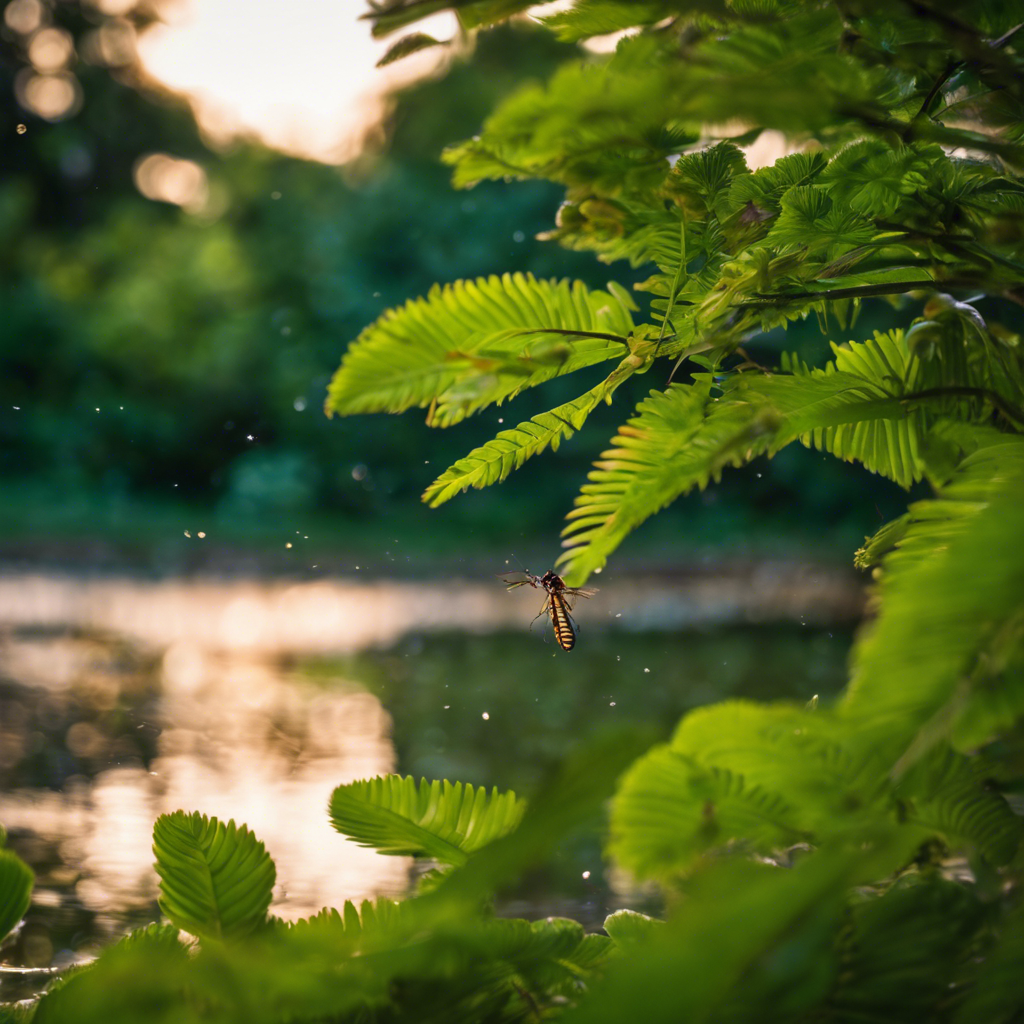In Tulsa, the humid subtropical climate and moderate rainfall provide ideal conditions for mosquitoes. The presence of the Arkansas River and stagnant water from ponds offer breeding sites. Overgrown vegetation creates hiding spots. West Nile virus is prevalent, prompting Health Department actions like larvicide treatments and spray trucks. Standing water, tall grass, and debris also attract mosquitoes. Control measures involve larviciding and adulticiding, with a focus on public health. Understanding these factors sheds light on why Tulsa is a hotspot for mosquitoes. More insights await on how these elements intertwine.
Key Takeaways
- Humid subtropical climate in Tulsa creates ideal conditions for mosquito breeding.
- Moderate rainfall in the region leads to standing water, perfect for mosquito reproduction.
- Presence of the Arkansas River contributes to mosquito habitats and breeding sites.
- Stagnant water from ponds and creeks serves as breeding grounds for mosquitoes.
- Overgrown vegetation in Tulsa provides shelter and breeding spots for mosquitoes.
Factors Contributing to Mosquito Infestation
The humid subtropical climate and moderate rainfall in Tulsa create an ideal breeding environment for mosquitoes. With hot summers and sufficient water sources like the Arkansas River, Tulsa becomes a hotspot for these pesky insects.
Stagnant water from ponds, creeks, and overgrown vegetation provide ample breeding grounds for mosquitoes to thrive. The standing water in various areas attracts mosquitoes, offering them a perfect spot to lay eggs and reproduce rapidly. Additionally, the overgrown vegetation, including tall grass and shrubs, not only provides shelter but also creates shaded areas for mosquitoes to rest and breed undisturbed.
The proximity to the Arkansas River further exacerbates the situation by ensuring a constant supply of water for mosquito breeding. These factors combined make Tulsa a haven for mosquitoes, increasing the likelihood of infestations and making it essential for residents to take preventive measures against these buzzing pests.
Impact of West Nile Virus
In light of the West Nile virus prevalence in Tulsa, the impact of this mosquito-borne disease on public health and community well-being is a pressing concern. With 10 mosquito traps already testing positive for the virus, the Tulsa Health Department has ramped up efforts to combat the spread of West Nile virus.
Mosquitoes carrying the virus are frequently found in bushes, high grass, and stagnant water, making these areas hotspots for potential transmission. To address this, the Health Department deploys spray trucks and larvicide treatments to reduce mosquito populations and minimize the risk of infection.
This year, the early and elevated presence of the virus in Tulsa has raised alarms, highlighting the importance of taking precautions. Continuous monitoring of mosquito activity is essential for detecting and preventing the transmission of West Nile virus in Tulsa, emphasizing the need for proactive measures to safeguard public health and well-being.
Breeding Grounds for Mosquitoes
Amid Tulsa’s humid subtropical climate and moderate rainfall, essential breeding grounds for mosquitoes emerge in various locations throughout the city. Mosquitoes are known to thrive in areas with standing water, including bird baths, clogged gutters, and containers left outdoors. Stagnant water sources such as ponds, pools, and overwatered gardens also attract mosquitoes for breeding purposes.
Tall grass, shrubs, and areas under trees serve as hiding spots for mosquitoes and can become potential breeding sites in Tulsa. Additionally, overgrown landscaping and debris provide optimal locations for mosquitoes to lay eggs and multiply, contributing to the proliferation of these insects in the region.
The combination of moderate rainfall and the humid subtropical climate in Tulsa creates an environment conducive to the development of mosquito populations, making it imperative for residents to be vigilant in eliminating standing water and maintaining their outdoor spaces to help reduce mosquito breeding grounds.
Control Measures in Tulsa
With Tulsa’s ideal breeding conditions for mosquitoes due to its humid subtropical climate and moderate rainfall, implementing effective control measures becomes essential. In Tulsa County, the control of mosquito populations is approached through a combination of methods:
- Larviciding: Targeting mosquito larvae in standing water sources helps prevent their development into adult mosquitoes.
- Adulticiding: Spraying insecticides to reduce the adult mosquito population and minimize the risk of diseases like West Nile virus.
- Community Education: Empowering residents with knowledge about prevention strategies such as eliminating standing water, using repellent, and maintaining clean surroundings plays a significant role in controlling mosquito populations.
Through these concerted efforts, Tulsa aims to mitigate the spread of mosquito-borne diseases and create a safer environment for its residents. By actively engaging in prevention measures and staying informed, the community in Tulsa plays a crucial role in the ongoing battle against mosquitoes and the diseases they may carry.
Public Health Concerns
Given Tulsa’s conducive environment for mosquito breeding and the potential transmission of disease-causing pathogens, public health concerns arise regarding the risks posed to both humans and pets in the area.
Mosquitoes in Tulsa can carry diseases such as the West Nile virus, emphasizing the importance of public health initiatives. The Tulsa Health Department’s mosquito surveillance program plays a critical role in monitoring and controlling the spread of these pathogens. By implementing larviciding and adulticiding methods, the city aims to reduce mosquito populations and minimize the threat to public health.
Additionally, eliminating sources of standing water, dead trees, and overgrown vegetation can significantly decrease mosquito breeding grounds. These proactive measures not only help in controlling mosquito populations but also serve to mitigate the potential public health risks associated with mosquito-borne illnesses.
Through coordinated efforts and community awareness, Tulsa can address these public health concerns effectively and safeguard the well-being of its residents and pets.
Frequently Asked Questions
Does the City of Tulsa Spray for Mosquitoes?
You observe Tulsa’s pest control efforts with interest. Yes, the city sprays for mosquitoes to safeguard public health. Chemical solutions target mosquito breeding grounds. While effective, urban spraying raises concerns about environmental impact. Community efforts aid in mosquito control and disease prevention.
Does Oklahoma Have Bad Mosquitoes?
Oklahoma has a high mosquito population due to its climate. Mosquito breeding thrives in warm weather and standing water. Urban areas like Tulsa attract mosquitoes. Neighborhood control and pest prevention are pivotal in combating diseases. Use natural repellents and protect yourself.
Why Are Mosquitoes Attracted to Certain People?
You attract mosquitoes based on genetic factors, body odor, carbon dioxide, skin bacteria, blood type, clothing choices, pregnancy hormones, alcohol consumption, lactic acid, and heat/sweat levels. Embrace your uniqueness, as these factors influence mosquito preferences.
Why Are the Mosquitoes so Bad in My Backyard?
In your backyard, standing water, overgrown vegetation, and warm weather create a paradise for mosquitoes. Lack of predators, poor drainage, and human activity contribute to their abundance. Check gutters, trim plants, and avoid outdoor lighting to deter them.





